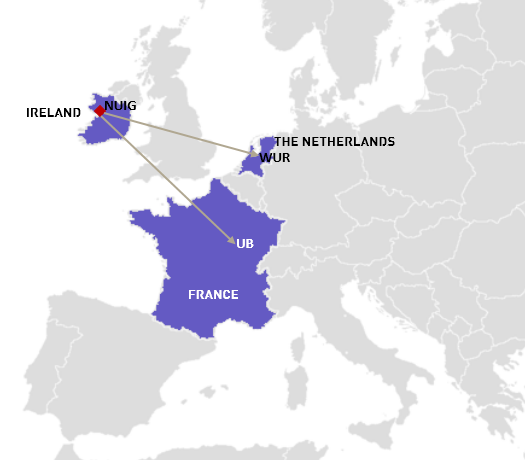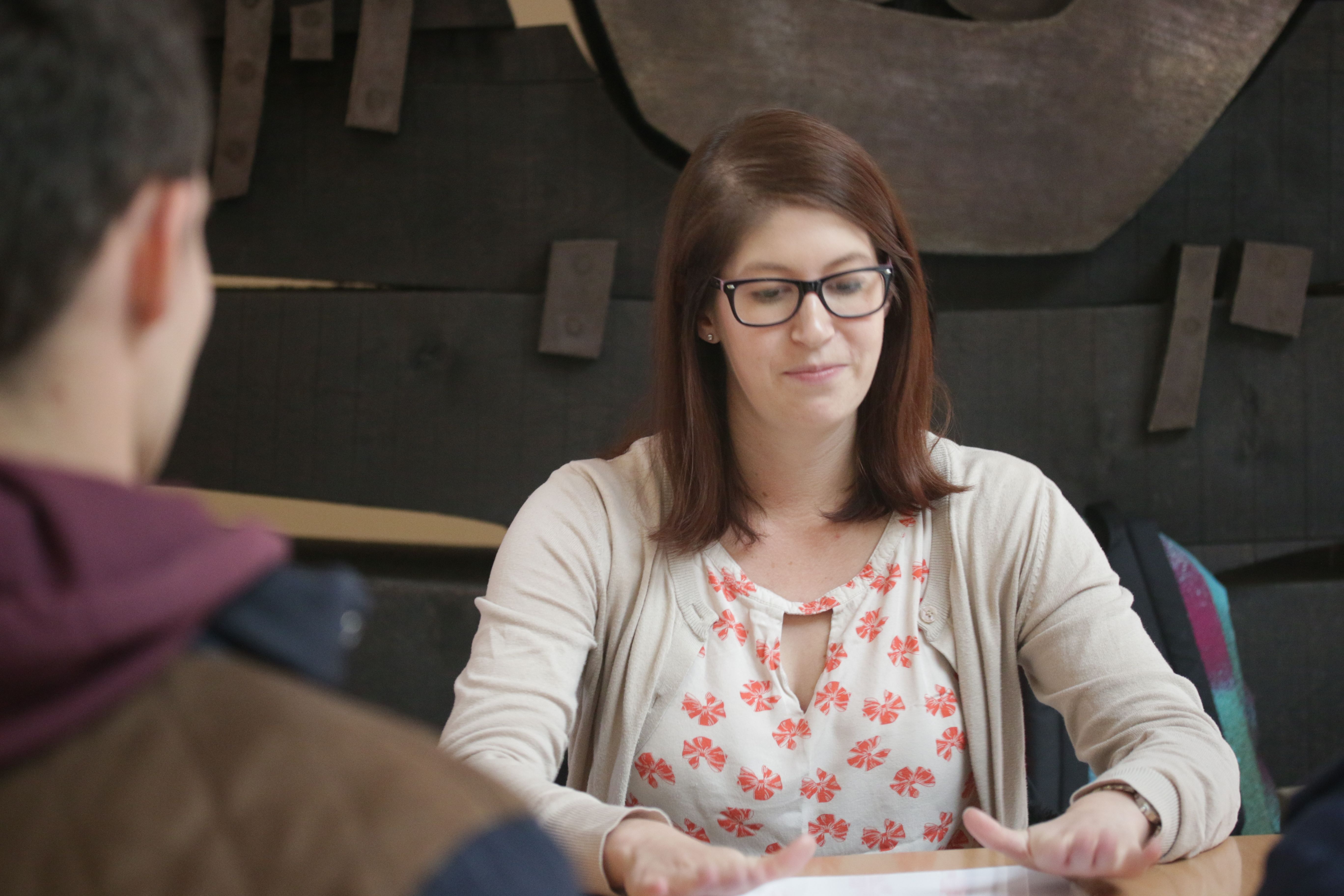PRESENTATION OF THE SUB-PROJECT 4
Role of σB regulon of L. monocytogenes in environmental stress resistance

Host organisation: National University of Ireland, Glaway Secondments: University of Burgundy (UB) and Wageningen University (WUR)
HOST INSTITUTION AND SUPERVISORS:
National University of Ireland, Galway, DR. Conor O’BYRNE (more details)
OBJECTIVES:
This project will use a combination of proteomic and transcriptomic approaches to elucidate the light stimulon of L. monocytogenes. This analysis will be performed in both wild-type and sigB mutant backgrounds in order to define the contribution of σB to the light response. The role of novel light-inducible components will be determined using genetic approaches (deletion and overexpression studies). The behaviour of these mutants will be performed during secondments. The role of novel light-inducible components will be determined using genetic approaches (deletion and overexpression studies). A 3-month secondment to University of Burgundy will be used to investigate the possibility that light can influence biofilm formation and soil survival. At NUI-Galway a series of innovative experiments will be conducted to investigate the effectiveness of blue light in controlling the growth and survival of L. monocytogenes on food processing surfaces and on food surfaces (vegetables, cheese and fish). Together these approaches will give new insights into the molecular response of L. monocytogenes to light, and establish whether visible light might be used as a means of controlling this organism in the food chain.
EXPECTED RESULTS:
Global transcriptomic response to light stimulus. Together these approaches will give new insights into the molecular response of L. monocytogenes to light, which may have important implications for food producers.
SECONDMENTS:
University of Burgundy (more details) and Wageningen University (more details)
DURATION OF THE RECRUITMENT :
36 months
PRESENTATION OF THE FELLOW
Amber DOREY
MY PREVIOUS TRAINING AND EXPERIENCE:
I am from Guernsey in the Channel Islands and I am 22 years old. I completed my undergraduate degree in Biology at the University of Bath, graduating in July 2014. During my undergraduate degree, I undertook a microbiology-based final year project that really sparked my passion for microbiology. After this, I undertook a Masters degree at the London School of Hygiene and Tropical Medicine in Medical Microbiology that I completed in September 2015 and from which I will be graduating in March 2016. Here I studied the role of outer membrane vesicles in Campylobacter jejuni pathogenesis in response to bile for my summer project, channeling my interest towards gastrointestinal bacteria. During the university holidays from 2011 to 2014, I worked in the States Analyst’ Laboratory in Guernsey carrying out microbiological and chemical analysis on drinking and environmental water samples. I am currently undertaking my PhD at the National University of Ireland, Galway investigating the molecular response of Listeria monocytogenes to visible light.
WHY I WANTED TO JOIN THE PROJECT :
I wanted to undertake a PhD to further my training in science in order to fulfill my career goal of becoming an independent scientific researcher. The List-Maps programme offers unrivalled opportunities as, in addition to carrying out scientific research, courses and workshops are provided to teach the additional skills that a scientific researcher requires to be successful. As mentioned above, I have an interest in gastrointestinal bacteria, and L. monocytogenes especially caught my interest as it is a successful gastrointestinal pathogen, but it is also ubiquitous in the environment, and is therefore capable of adapting to a vast range of conditions. It was important to me to undertake my PhD at an institution with the experience to offer a strong level of support, and the facilities to allow me to undertake quality research. The bacterial stress response group at NUI Galway has been researching the response of L. monocytogenes to visible light for several years, providing them with an invaluable level of experience.
ABOUT MY RESEARCH PROJECT :
The overall aim of my project is to determine the molecular response of L. monocytogenes to visible light. To achieve this aim, I have three objectives:
1. Determine whether resistance to visible light can be induced by low intensity light
2. Identify genes that are responsible for the response to light
3. Determine the influence of light and these genes on biofilms and soil survival
In terms of the overall project, my sub-project will provide a greater understanding into how L. monocytogenes responds to light in the environment, and how it overcomes this environmental stress to generate an infection in the host. The sub-project is particularly interesting because light has been shown to inactivate bacteria, yet L. monocytogenes is able to overcome this as it is found ubiquitously within the environment, and also because light may have a relevant application in food processing environments as a method of surface decontamination. To achieve my objectives I will conduct experiments to examine changes in the bacterial genome in the presence of light, and to assess the importance of individual genes in the response to light by generating mutant bacteria with selected genes removed from the genome. In addition, I will be examining the effects of these mutations on the ability of the bacteria to form biofilms and survive in soil, as these are both important elements of the L. monocytogenes lifecycle.
OTHER INTERESTS
Outside of the lab I enjoy horse riding as my main recreational activity. I have been riding for over 20 years, competing in dressage, show jumping, eventing and showing, with many wins and placings in all disciplines. While at the University of Bath, I represented the university at national level and achieved team silver. I was also captain of the second team.
CONTACT :
Amber.Dorey@nuigalway.ie
http://ie.linkedin.com/in/amberdorey
![]() This project has received funding from the European Union’s Horizon 2020 research and innovation programme under the Marie Sklodowska Curie grant agreement n° 641984
This project has received funding from the European Union’s Horizon 2020 research and innovation programme under the Marie Sklodowska Curie grant agreement n° 641984

